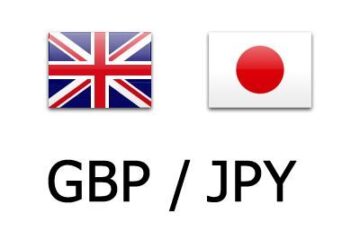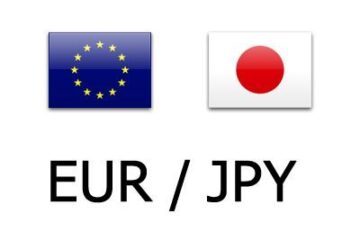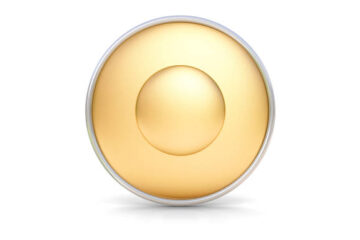Frontier and Spirit are two of the most complained-about U.S. airlines, but they also tend to be among the cheapest.
Both are known for delays, cancelations, and charging passengers for carry-on bags (something most large, mainstream airlines don’t do), but both are also very popular for their low fares. In fact, both are designated “ultra-low-cost carriers,” a term reserved for airlines that keep fares as low as possible by including only the bare minimum and charging for any and all “extras.”
What are ultra-low-cost carriers?
ULCCs like Spirit and Frontier “offer the lowest possible base fares, with almost all additional services available for an extra fee,” according to Intelisys Aviation. “This includes checked and carry-on baggage, seat selection, and in-flight refreshments.”
💰💸 Don’t miss the move: SIGN UP for TheStreet’s FREE Daily newsletter 💰💸
In other words, ULCCs keep basic fare prices low by not including things like an in-flight soft drink or the ability to bring a carry-on bag, instead offering these amenities for additional fees.
Spirit & Frontier Airlines compared head-to-head
The two oft-ridiculed but highly used carriers are so similar that they have come close to merging multiple times, once in 2022 and again in late 2024, although a deal didn’t come together in either case, leaving Frontier and Spirit as rivals within the ultra-low-cost carrier space — for now.
Due to their low fares, both airlines have become common (if somewhat begrudging) choices for budget travelers, working-class folks, and young people — many of whom wonder which of these bottom-shelf airlines actually offers the better value … and which is most likely to ruin their day.
Related: Costco vs. Sam’s Club: Memberships & product prices compared
Here, we dig into the nation’s two most popular budget airlines to see how they stack up side by side in terms of ticket prices, baggage fees, delays and cancelations, customer experience, and more.
Below is a table that compares some basic aspects of the two airlines at a glance, followed by deeper dives into the specifics of each.
Spirit vs. Frontier at a glance
Basic fare prices
Very low
Very low
Draw
On-time percentage (2024)
71.2%
66.7%
Spirit
Cancellation percentage (2024)
2.24%
2.59%
Spirit
American states served
46 (Doesn’t serve DC)
41 (Plus DC)
Spirit
American airports served
61
88
Frontier
International airports served
26
18
Spirit
Seat roominess
Poor (28” average pitch)
Poor (28” average pitch)
Draw
Flight prices
When it comes to bare-bones fares, Spirit and Frontier are pretty comparable. Both offer some of the lowest fares in the industry, and if you’re traveling light, (i.e., with no carry-on, just a personal item), the bottom-shelf ticket prices offered by the two airlines are a great deal, especially for shorter flights.
Keep in mind, however, that both airlines are known for their relatively cramped seating, and that your total costs can easily add up if you bring a carry-on, check a bag, choose a seat, or order any refreshments on your flight. All of these cost extra, so in some cases, choosing a carrier with a higher base fare that includes all of these amenities can actually end up being cheaper overall.
Delays
Spirit and Frontier both routinely rank among the bottom three to four American airlines in terms of on-time arrivals, according to data collected by the Department of Transportation.
In 2024, through the month of August (the last month for which data was available as of this article’s last update), Spirit fared significantly better than Frontier, with 71.2% of its flights arriving on time, landing it the 8th-place ranking among the nations top 10 airlines.
Frontier, on the other hand, ranked last, with only 66.7% of its 2024 flights arriving on time as of the end of August.
Cancelations
Spirit and Frontier also both tend to cancel flights more often than other major American carriers. During the first eight months of 2024, Spirit canceled an average of 2.24% of its scheduled flights each month, while Frontier canceled a slightly higher average of 2.59% of its monthly flights.
View the original article to see embedded media.
Cities & states served
Overall, Spirit Airlines serves more total American states (46) than Frontier (41), but Frontier serves more total American airports (88) than Spirit (61).
In other words, Frontier offers more total American destinations across fewer total states, while Spirit offers fewer total American destinations but across more total states. Spirit also offers more international destinations (26) than Frontier (18).
States Spirit doesn’t fly to/from
ColoradoDCNew HampshireRhode IslandWest Virginia
States Frontier doesn’t fly to/from
AlabamaAlaskaDelawareIdahoKansasKentuckyNew HampshireNew MexicoRhode Island
More on airlines:
JetBlue pilot salary: What the low-cost airline pays its flight deckFlight attendant jobs: Pay, outlook & how to land this competitive roleDelta pilot salaries: What the world’s biggest airline pays its flightdeck
Baggage fees & size restrictions
As ULCCs, both Spirit and Frontier charge for carry-on and checked bags, while one personal item per passenger (18 x 14 x 8 inches) is allowed free of charge.
Both airlines also charge more for carry-on and checked bags the later in the travel process they are purchased. For instance, both airlines charge the least for bags if they are purchased when a customer books their flight online, while they charge significantly more if a carry-on or checked bag is purchased during the check-in process or at the gate.
Here are the luggage price and size details for each airline:
Spirit
Size restrictions
Personal item max size: 18 x 14 x 8 inchesCarry-on max size: 22 x 18 x 10 inches; 40 lbsChecked bag max size: 62 inches total (L + W + H); 50 lbs
Prices
Carry-on price at booking: $31–$41Carry-on price at airport/gate: $55–$65Checked bag price at booking: $26–$36Checked bag price at airport/gate: $50–$65
View the original article to see embedded media.
Frontier
Size restrictions
Personal item max size: 18 x 14 x 8 inchesCarry-on max size: 24 x 16 x 10 inches; 35 lbsChecked bag max size: 62 inches total (L + W + H); 40 lbs
Prices
Carry-on price at booking: Usually around $39Carry-on price at airport/gate: Usually around $60Checked bag price at booking: Usually around $38Checked bag price at airport/gate: Usually around $60
Customer experience
Passengers tend to have similar experiences on Spirit and Frontier flights.
So long as they aren’t canceled, both airlines’ flights get passengers where they need to go — sometimes even on time. Neither airline’s seats are particularly roomy or comfortable, but for short flights, most guests find the accommodations bearable. That being said, larger folks and those taking longer flights may not have the best experience comfort-wise.
The takeaway
Spirit and Frontier are about as similar as it gets, so for most passengers, whichever airline’s flight most closely matches their intended itinerary is the best choice. Both offer low-cost tickets and bare-bones accommodations, and both charge for any and all add-ons (many of which are included with fare on more mainstream airlines)
That being said, Spirit flights tend to arrive on time more often and be canceled slightly less often, and Spirit also flies to and from more total U.S. states (and international destinations) than Frontier.
Spirit and Frontier have similar bag fees, but Spirit’s carry-on and checked bag weight limits are 5 lbs and 10 lbs, respectively, higher than Frontier’s, so those paying for baggage can bring more with them when flying Spirit.
Related: Veteran fund manager sees world of pain coming for stocks


